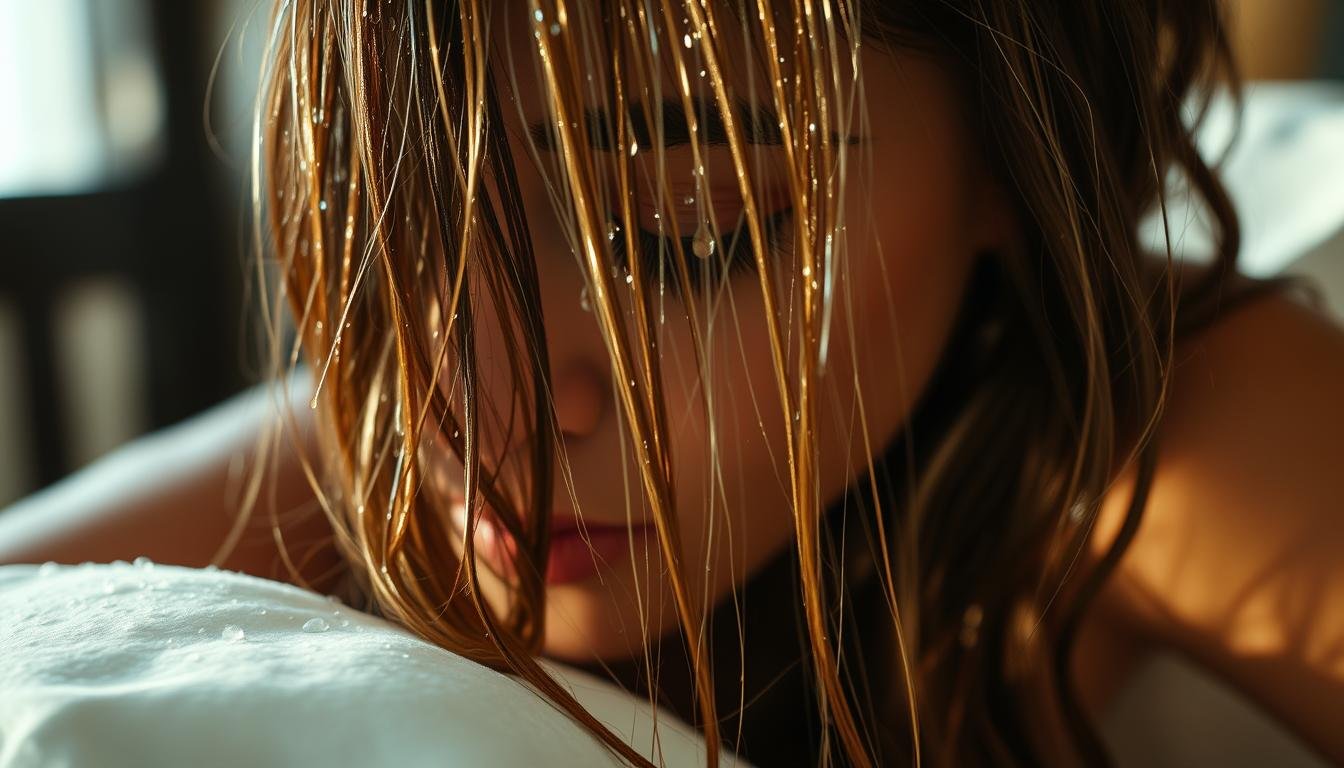Is it Bad to Sleep with Wet Hair? Health Facts Guide
Did you know that hair is at its weakest when wet, capable of stretching up to 30% of its original length before risking irreparable Damage? This startling statistic highlights the potential risks of sleeping with damp locks. While the occasional night of wet hair may not cause significant harm, dermatologists caution against making it a regular habit due to the increased risk of hair breakage, scalp infections, and other health concerns.
When hair is wet, it becomes more elastic and fragile, making it prone to Damage from friction during sleep. Consistently sleeping on wet hair may also create a warm, moist environment that allows fungi like Malassezia, Staphylococcus, Aspergillus, and scalp ringworm to thrive, potentially leading to scalp infections such as seborrheic dermatitis, folliculitis, and tinea capitis.
To maintain healthy hair and prevent these issues, it’s important to understand the relationship between hair health, sleep cycles, and different hair types. In this comprehensive Guide, we’ll explore the myths and facts surrounding wet hair and sleep, the potential problems it can cause, and expert-backed recommendations for handling overnight hair care.
Key Takeaways
- Hair is most vulnerable when wet, with the potential to stretch up to 30% of its original length before risking damage.
- Sleeping with wet hair can create a warm, moist environment that allows fungal and bacterial infections to thrive on the scalp.
- Consistent wet hair sleeping may lead to issues like seborrheic dermatitis, folliculitis, and tinea capitis.
- Silk pillowcases and hair scarves can help minimize hair damage when sleeping with wet hair.
- Regular washing of bedding is recommended to reduce the risk of contamination from wet hair.
Understanding Hair and Sleep
Maintaining healthy hair health is crucial for overall well-being. The quality of our sleep cycles can have a significant impact on hair growth and regeneration. Additionally, understanding the unique needs of different hair types is essential for developing effective hair care routines, especially when it comes to managing wet hair during sleep.
The Importance of Hair Health
Hair structure consists of a complex network of proteins and cells that determine the strength and elasticity of individual strands. The cuticle layer acts as a protective barrier, but it can be compromised by chemical treatments, making hair more susceptible to damage when wet.
Sleep Cycles and Their Influence on Hair
During sleep, our bodies undergo various physiological processes, including the regulation of hormones that play a vital role in hair growth and regeneration. Disruptions to our sleep cycles can potentially impact the health and appearance of our hair.
Different Hair Types and their Needs
- Straight, thicker hair may experience less frizz when sleeping with wet hair compared to those with curly hair.
- Individuals with chemically treated or weakened hair are more vulnerable to damage and breakage when sleeping with wet hair due to increased elasticity and fragility.
- Curly or coily hair types may require more gentle handling and specialized care routines to maintain their health and appearance, especially when dealing with wet hair during sleep.
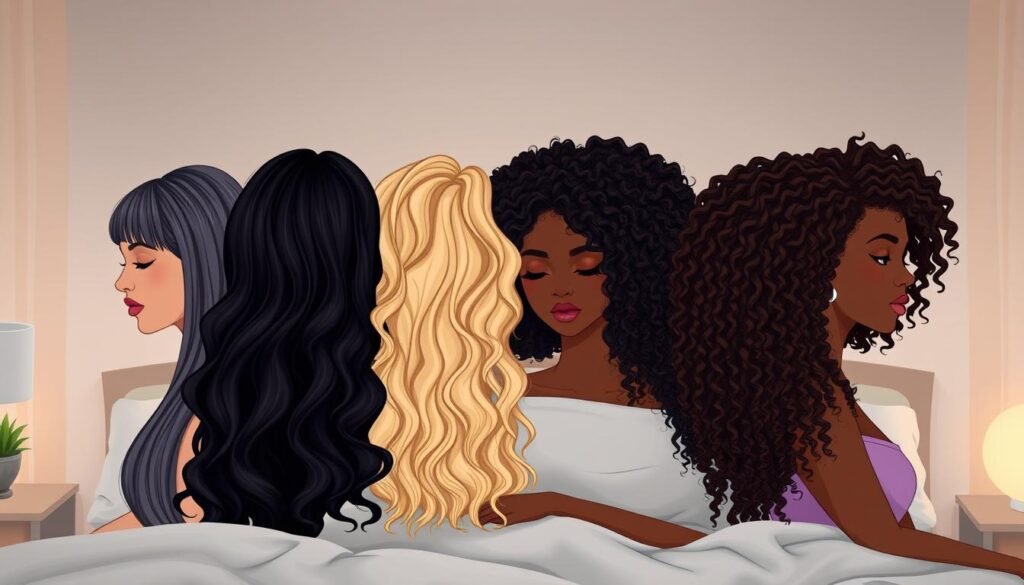
Understanding the unique characteristics and needs of different hair types is crucial for developing effective Hair Care routines, particularly when it comes to managing wet hair during sleep.
Myths About Wet Hair and Health
When it comes to Hair Care, there are many common misconceptions surrounding the dangers of sleeping with wet hair. However, a closer look at the scientific evidence reveals that these myths are often unfounded. Let’s explore some of the most prevalent myths and the facts that debunk them.
Common Misconceptions
One of the most widespread myths is that sleeping with wet hair can cause colds or respiratory illnesses. The belief is that exposure to cold temperatures while sleeping with damp hair can lead to catching a cold. In reality, colds are caused by viruses, not by getting chilled. The idea that cold air or wet hair can directly cause colds is not supported by scientific research.
Another common myth is that sleeping with wet hair can lead to the growth of mold or bacteria on the scalp and pillow. While it’s true that damp conditions can foster the growth of certain fungi and microbes, this is not a direct result of sleeping with wet hair. Proper hair drying and maintaining a clean sleeping environment are more important factors in preventing such issues.
Scientific Evidence Against Myths
- Studies have shown that colds are more prevalent during colder months in the United States due to factors like school reopening and increased indoor time, not because of wet hair.
- Research on bedding has found a range of fungal species, including those that can cause infections, regardless of whether the person slept with wet hair or not.
- Hair is at its weakest and most prone to damage when wet, making it susceptible to breakage if tossed and turned on while sleeping.
- Yeast and fungi thrive in warm, damp conditions, but sleeping with wet hair is not the sole contributor to these scalp issues.
While it’s important to address any scalp concerns, the myths about wet hair causing colds or infections are not supported by scientific evidence. Proper Hair Care routines and maintaining good sleep hygiene are more effective ways to promote healthy hair and overall well-being.
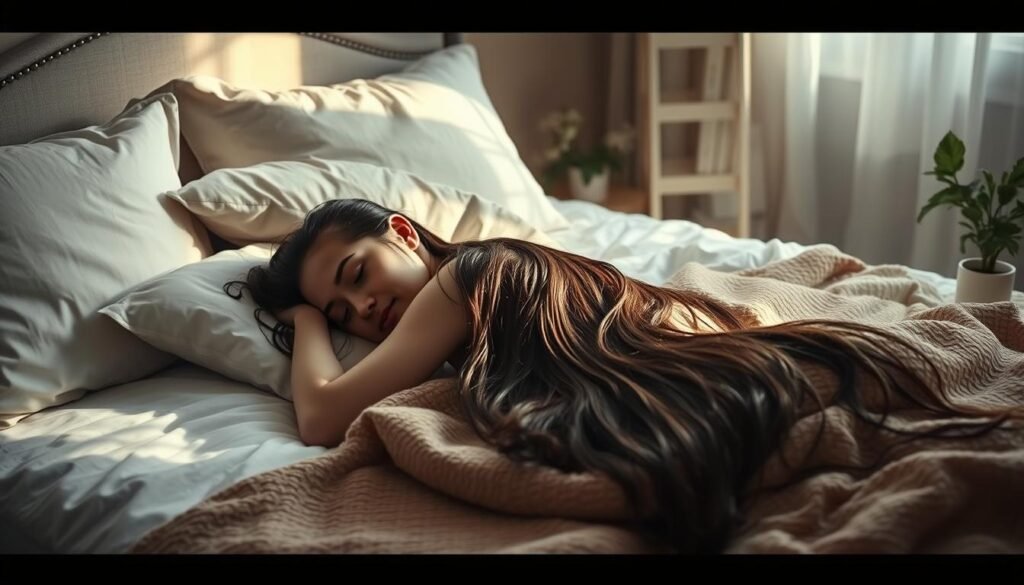
Potential Issues of Sleeping with Wet Hair
While it may be tempting to hit the sheets with freshly washed locks, sleeping with wet hair can pose several potential problems for your hair, scalp, and overall health. Understanding these risks can help you make informed decisions about your nighttime hair care routine.
Increased Risk of Mold and Bacteria
Sleeping with damp hair can create a warm, moist environment that is conducive to the growth of fungus and bacteria on your pillow and scalp. This can lead to issues like tinea capitis (a scalp fungal infection) or exacerbate conditions like seborrheic dermatitis. Experts recommend washing pillowcases regularly in hot water to prevent the buildup of allergy-triggering molds and fungi.
Frizz and Damage to Hair
Wet hair is more prone to frizz and breakage due to the friction caused by tossing and turning on a pillow. Board-certified cosmetic dermatologist Dr. Michele Green explains that wet hair strands are more fragile, as the moisture weakens the protein structure, making them more vulnerable to damage.
Skin and Scalp Concerns
The humid environment created by sleeping on damp hair can also lead to skin and scalp issues. Dr. Anna Chacon, a board-certified dermatologist, warns that it can contribute to the development of acne by clogging pores, as well as bacterial or fungal folliculitis, an inflammation of the hair follicles.
To avoid these potential problems, experts recommend blotting hair dry with a microfiber towel or t-shirt, using a satin or silk pillowcase, and applying hair oil to minimize breakage before bedtime. Investing in products like the Kitsch Hair Towel can also help protect your locks while you sleep.
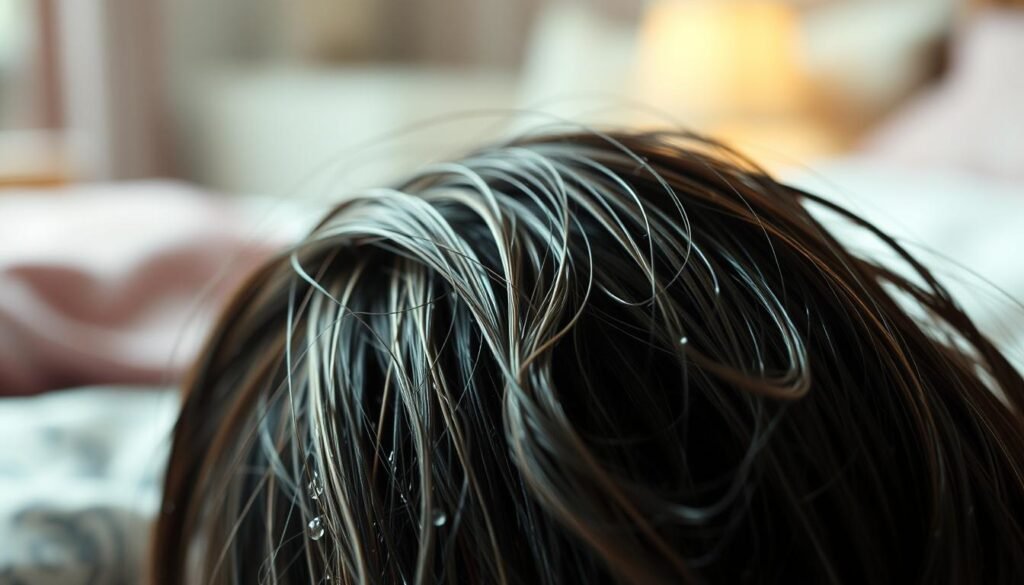
“Sleeping on wet hair can make one susceptible to developing small acne bumps or pustules due to bacterial or fungal folliculitis, a common skin condition that inflames hair follicles.”
By understanding the risks and taking proactive steps to care for your hair before bed, you can help maintain the health and vitality of your locks while also ensuring a good night’s sleep.
How Wet Hair Affects Sleep Quality
When it comes to our sleep quality, the condition of our hair can play a surprisingly significant role. Sleeping with wet hair can impact both our comfort levels and our body’s temperature regulation, potentially disrupting our much-needed restorative rest.
Comfort Levels While Sleeping
Damp pillows and bedding created by wet hair can lead to an uncomfortable sleeping environment. The moisture can cause a chill, making it difficult to achieve the optimal temperature for restful sleep. Additionally, the friction from wet hair rubbing against the pillow over the course of the night can lead to damage and frizz, further compromising sleep quality.
Temperature Regulation and Sleep
While a warm bath before bed can help improve sleep quality by aiding in temperature regulation, sleeping with wet hair may counteract this effect. The dampness can disrupt the body’s natural ability to maintain a consistent temperature, potentially leading to restlessness and disrupted sleep cycles. This can be especially problematic for those who are sensitive to temperature fluctuations during the night.
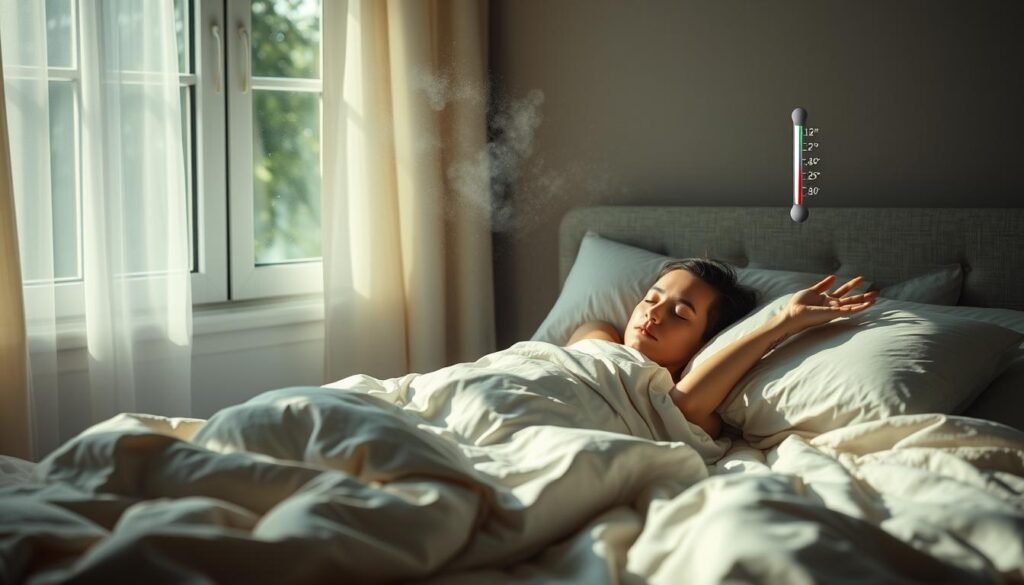
“Consistently sleeping on wet hair can raise a person’s risk of hair breakage. Unless there is significant head movement or tossing and turning, extreme hair damage from sleeping on wet hair is not likely.”
While the impact of sleeping with wet hair on sleep quality is not fully understood, it’s clear that the combination of moisture, temperature, and friction can create an uncomfortable and potentially disruptive sleeping environment. By addressing these factors, individuals can work towards achieving the high-quality sleep that is essential for overall health and well-being.
Recommendations for Handling Wet Hair Before Bed
Proper hair care before bedtime is crucial to maintain healthy tresses, especially when dealing with wet hair. While it’s best to dry your hair completely before hitting the sack, there are instances where that’s not feasible. In such cases, here are some expert-approved tips and product recommendations to help you manage your wet hair at night.
Drying Techniques
If you can’t fully dry your hair, at least try to partially dry it using gentle methods. Avoid vigorously rubbing your hair with a towel, as this can lead to frizz and damage. Instead, gently blot your hair with a soft, microfiber towel or an old t-shirt. You can also use a hair dryer on a low, cool setting to help speed up the drying process without causing excessive heat damage.
Products to Use or Avoid
When sleeping with damp hair, it’s important to apply a leave-in conditioner or hair oil, such as Kérastase 8H Magic Night Hair Serum or L’Oréal Paris Elvive Hyaluronic Plump Moisture Serum. These products can help protect your strands and seal in moisture. Avoid using heavy, greasy Products that can weigh down your hair or lead to buildup.
Hairstyles for Wet Hair at Night
- For straight hair, consider braiding your hair or creating a loose, low bun to help maintain the style and minimize frizz.
- Wavy or curly hair can benefit from a pineapple hairstyle, where you gather your hair on top of your head and secure it with a soft scrunchie.
- Coily hair types may find success in two-strand twists or loose braids to keep their curls defined and hydrated.
Remember, the key is to avoid pulling your hair too tightly, as this can cause tension and breakage. Opt for soft, gentle hairstyles that allow your hair to breathe and dry naturally.
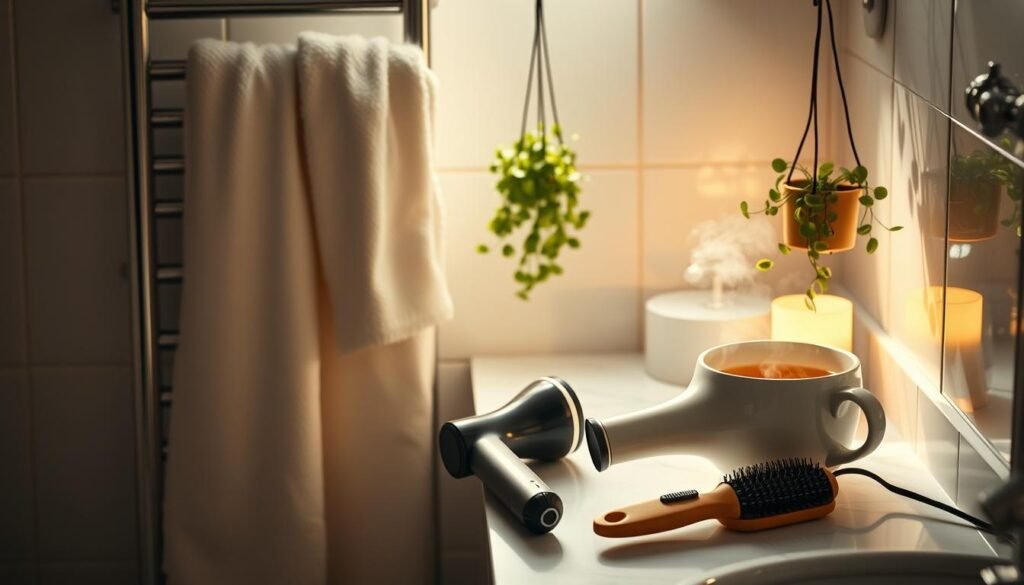
By following these hair drying tips and nighttime hair care recommendations, you can help ensure your hair stays healthy and manageable, even when you can’t fully dry it before bedtime.
Alternatives to Sleeping with Wet Hair
While it’s best to avoid sleeping with wet hair, there are some alternatives that can help protect your tresses when fully drying your hair before bed isn’t possible. From hair wraps and towels to protective hairstyles and silk pillowcases, these options can minimize damage and maintain hair health even when sleeping with slightly damp locks.
Using Hair Wraps or Towels
Investing in a high-quality hair wrap or microfiber towel can be a game-changer for sleeping with wet hair. These specialized materials gently absorb moisture without causing excessive friction or tangling. Hair stylist Jenn Velez recommends using a microfiber hair towel to “minimize breakage and frizz when drying wet hair.”
The Role of Protective Hairstyles
Opting for protective hairstyles, such as braids or buns, can also help safeguard your hair while you sleep. Celebrity hairstylist Creighton Bowman notes that sleeping on wet hair can “disrupt the curl pattern for curly hair and exacerbate dryness and frizz for fine straight hair.” Incorporating protective styles into your nighttime routine can mitigate these issues.
Choosing the Right Pillowcase
The material of your pillowcase can make a significant difference in how your hair fares overnight. Board-certified dermatologist Marisa Garshick, MD, suggests using a silk or satin pillowcase to “reduce friction on the hair shaft and prevent breakage.” Additionally, regularly washing your pillowcase can help prevent bacterial buildup and mildew, which can further damage wet hair.
By incorporating these alternatives into your nighttime routine, you can enjoy a good night’s sleep while still protecting the health and integrity of your hair, even when it’s not fully dry.
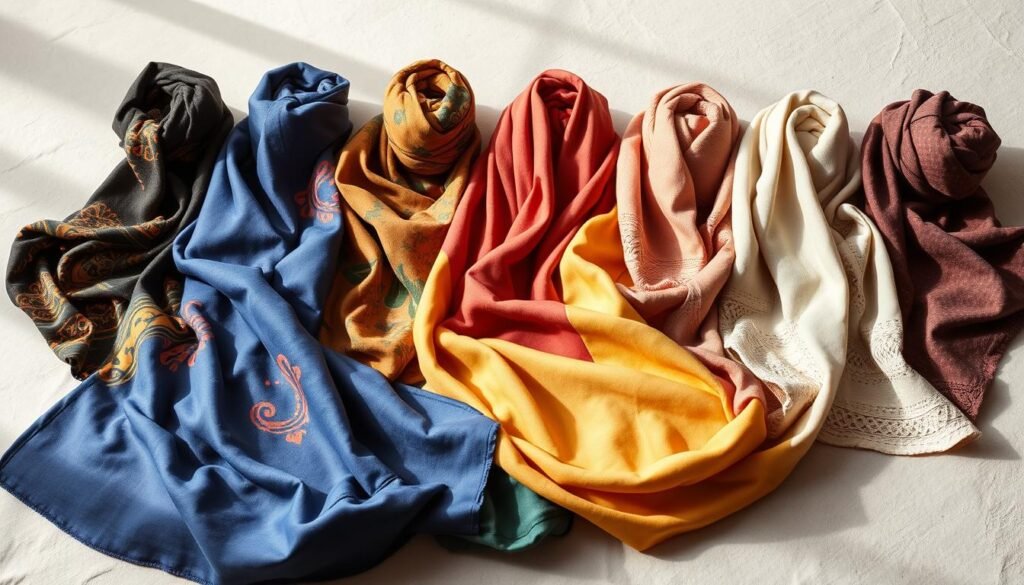
Expert Opinions on Sleep and Hair Care
When it comes to the age-old question of whether it’s bad to sleep with wet hair, dermatologists and hair care experts offer valuable insights. According to Dr. Michele Green, a board-certified cosmetic dermatologist in New York City, going to bed with damp hair can pose significant risks to hair health.
Dermatologist Insights
Wet hair strands are much more fragile than dry hair strands, explains Dr. Green. “When hair is wet, it becomes more elastic and the protein structure is weakened, making it more susceptible to breakage.” Sleeping with wet hair can also contribute to the development of fungal infections on the scalp due to the moist environment, as noted by Dr. Anna Chacon, a board-certified dermatologist in Miami, Florida.
Trichologist Advice
Penny James, a board-certified Trichologist, warns that going to bed with wet hair could cause unnecessary stress on the hair shaft, leading to breakage, especially for those with fragile hair. Damp pillows can also lead to the growth of fungus, disrupting the microbiome and health of the scalp, according to James.
To protect hair health while ensuring a good night’s sleep, experts suggest the following recommendations:
- Use a microfiber towel or t-shirt to blot hair dry before going to bed, as opposed to rubbing with a regular towel.
- Apply a hair oil to the scalp or strands to reduce friction and minimize breakage.
- Opt for a satin or silk pillowcase to create less friction with the hair.
- Style hair in a loose braid or bun to limit tangles and breakage.
By following these expert-approved tips, individuals can balance their hair care needs with optimal sleep hygiene for overall health and wellbeing.

Balancing Hair Health and Sleep Hygiene
Achieving a healthy balance between hair care and sleep hygiene is essential for maintaining lustrous locks and a well-rested mind. By creating a strategic nighttime routine, you can ensure your hair dries thoroughly before hitting the pillow, while also prioritizing scalp care for optimal hair growth and vitality.
Creating a Nighttime Routine
Adjust your shower schedule to allow ample time for your hair to air-dry or gently towel-dry before bed. Avoid using heat-based styling tools, as research suggests they can contribute to hair damage. Instead, consider these gentle drying techniques:
- Wrap your hair in a soft, microfiber towel or t-shirt to absorb excess moisture.
- Use a wide-tooth comb to gently detangle your hair, minimizing breakage.
- Style your hair in a loose, protective updo or braid to prevent tangles and frizz.
The Importance of Scalp Care
Your scalp care routine is just as crucial as your hair care regimen. Sleeping with wet hair can disrupt the delicate microbiome on your scalp, potentially leading to issues like dandruff, dermatitis, or even scalp infections. To maintain a healthy scalp:
- Use a gentle, sulfate-free shampoo and conditioner formulated for your hair type.
- Incorporate a weekly scalp scrub or mask to exfoliate and soothe the skin.
- Massage your scalp with your fingertips during Shampooing to stimulate blood flow and promote healthy hair growth.
By following a consistent nighttime routine and prioritizing scalp care, you can strike a balance between hair health and sleep hygiene, ensuring your locks look and feel their best, while also enjoying a restful night’s sleep.
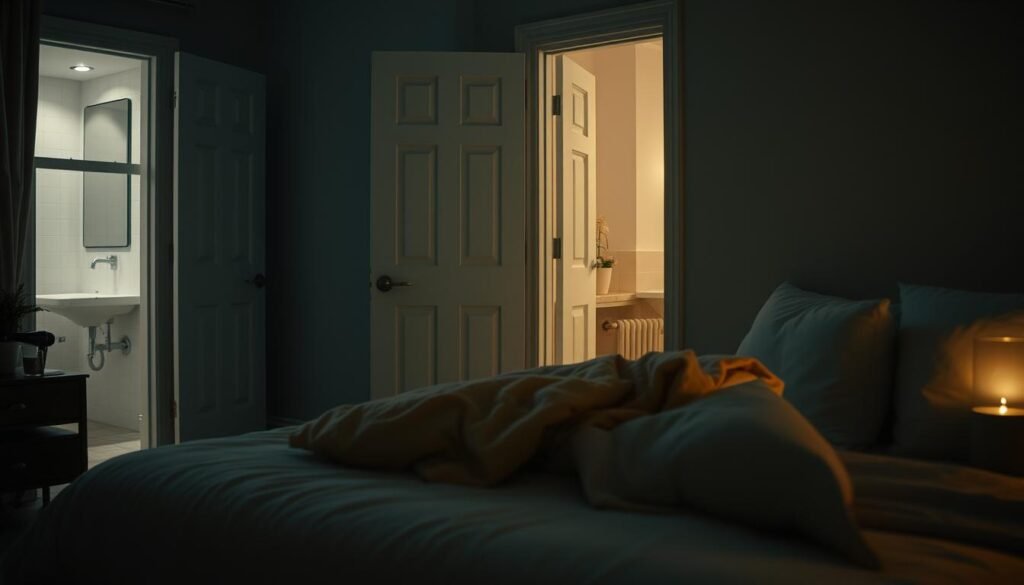
Final Thoughts on Wet Hair and Sleep
While occasional sleeping with wet hair may not cause significant harm, consistently doing so can lead to a range of hair and scalp issues. Prioritizing proper hair drying when possible is the best approach to maintain healthy tresses. However, if nighttime showers are a necessity, taking precautions to protect wet hair during sleep can make a difference.
Key Takeaways for Healthy Hair Practices
Avoiding sleeping with wet hair helps prevent problems like fungal infections, frizz, and hair breakage. Using a microfiber towel, applying nourishing products, and styling hair in loose updo’s can all minimize damage. Regularly washing bedding and changing pillowcases are also recommended to maintain a clean, supportive sleep environment for your hair.
Personalizing Your Routine
When developing a nighttime hair care routine, consider your individual hair type, lifestyle, and any health concerns. Balance the benefits of nighttime showers with the need for proper hair care to maintain overall health and well-being. Experiment with different techniques and products to find the right balance that works for you and your hair’s unique needs.
FAQ
Is it bad to sleep with wet hair?
Dermatologists advise against sleeping with wet hair due to increased risk of hair breakage and scalp infections. Occasional wet hair sleeping is unlikely to cause significant harm, but consistently doing so can lead to issues like fungal or bacterial infections, seborrheic dermatitis, and worsen existing dandruff.
Can sleeping with wet hair cause colds?
No, scientific evidence shows that colds are caused by viruses, not wet hair. The belief that exposure to cold temperatures causes common colds is not supported by evidence. Colds are caused by viruses infecting the respiratory system and spread through air droplets or contaminated surfaces.
How does wet hair affect sleep quality?
Wet hair can create an uncomfortable sleeping environment by causing discomfort and disrupting body temperature regulation during sleep. Damp pillows may also worsen acne by creating a humid environment that clogs pores.
What are the potential issues of sleeping with wet hair?
Sleeping with wet hair can increase the risk of fungal or bacterial infections, such as tinea capitis or seborrheic dermatitis. It can also lead to frizz, breakage, and damage to the hair due to increased elasticity and friction against pillows.
How can I properly care for wet hair before bed?
Ideally, dry hair completely before bed. If not possible, partially dry hair and use gentle drying techniques. Apply leave-in conditioner or hair oils, and avoid tight hairstyles that can cause tension and breakage. Use a loose scrunchie or hair tie for longer hair, and consider using a silk pillowcase to reduce friction.
What are some alternatives to sleeping with wet hair?
Use a hair wrap or microfiber towel to absorb moisture, opt for protective hairstyles that minimize friction and tangling, and choose a silk pillowcase to reduce friction and potential hair damage.
What do experts recommend for managing wet hair and sleep?
Dermatologists and trichologists advise avoiding sleeping with wet hair to prevent fungal infections and hair breakage. They recommend developing a nighttime routine that allows time for Hair to dry before bed, focusing on scalp care to promote healthy hair growth, and using gentle hair care products that don’t strip natural oils.
